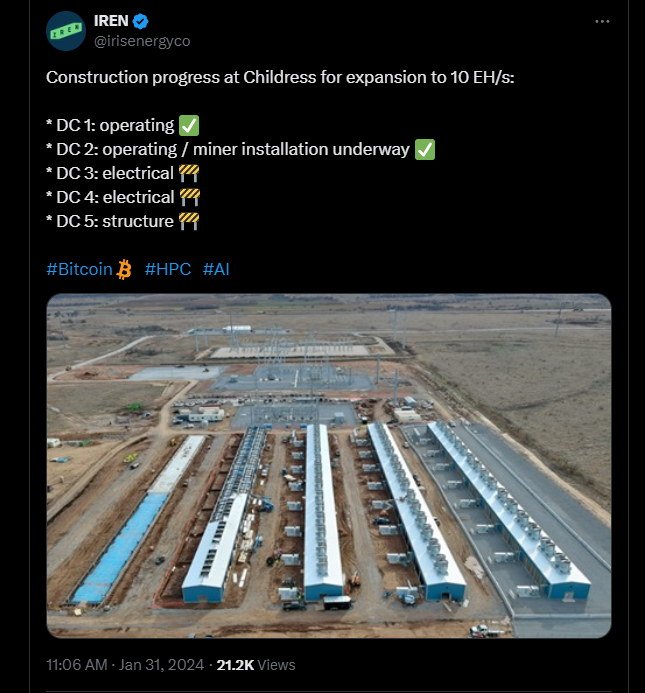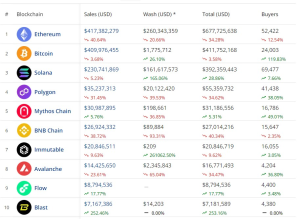The Incentive Structure for Bitcoin Mining has Been Altered by Wall Street funding: Report
3 min read
The incentive structure underpinning Bitcoin mining has been dramatically changed, according to Bitfinex experts, by Wall Street investment of publicly traded Bitcoin mining companies.
Capital investments made by institutions in public Small-scale and individual miners have been negatively impacted by bitcoin mining businesses, which may have long-term effects on network dynamics.
An analysis of market dynamics around the impending halving of Bitcoin by Bitfinex reveals a shift in the dynamics of the mining environment for cryptocurrencies over the last ten years.
It implies that the emergence of publicly traded Bitcoin mining companies represents a departure from the decentralized idea of individual miners bolstering network security for their own benefit.
An excerpt says, “These corporate entities operate on a vastly different scale and with distinct priorities compared to their smaller counterparts, with their focus squarely on shareholder returns.”
The research emphasizes that strategic decisions that prioritize financial success over the altruistic values of the Bitcoin community must take into account the requirement to optimize profitability and manage investor expectations.
Additional characteristics and principles of Bitcoin include resistance to censorship, equal access to the network, and network security. The contemporary environment presents the network’s guiding principles with both opportunities and problems.
Influx of Capital from Wall Street
The analysts point out that more hashing power may result from the infusion of funds and the “professionalization” of mining operations by publicly traded companies, thereby improving the general security and stability of the Bitcoin network.
On the other hand, since the network behind Bitcoin was designed to be open, international, and immune to centralized authority, this raises questions regarding centralization and the power of corporate interests.
The analysts clarify, “The Bitcoin community closely monitors these companies’ growth and consolidation to ensure that the network’s decentralized ethos and the principles of Satoshi’s game theory design remain intact, even as the mining landscape evolves.”
According to the research, corporate mining’s “Wall Street funding” has significantly changed the network’s incentive structure.
Corporate miners benefit from the resource gap in that it allows them to expand operations, get more favorable energy contracts, and make investments in cutting-edge technologies.
According to the Bitfinex research, miners operating on a big scale experience a level of efficiency and profitability that is beyond the reach of individual miners or huge independent competitors.
In addition, the experts wonder if the “decentralized ethos of Bitcoin” would be threatened by a more centralized environment, and how this might impact mining reward distribution and network security.
The Strongest Survive
Concerns about the future of hobbyists, independent miners, and the distribution of the network’s hash rate geographically all come into prominence.
According to the report, in order to maintain profitability, independent miners need to work together and innovate. Smaller miners can pool their computing power through mining pools to split rewards and stay competitive.
The sustainability of hobby mining may depend on ongoing advancements in mining technology and techniques, such as the creation of hardware that uses less energy and the exploitation of renewable energy sources.
The analysts also point out that one of the most important factors in preserving the decentralization of the network is the geographical heterogeneity of mining. Prospective markets possessing unexplored or renewable energy resources present a favorable environment for mining activities.






